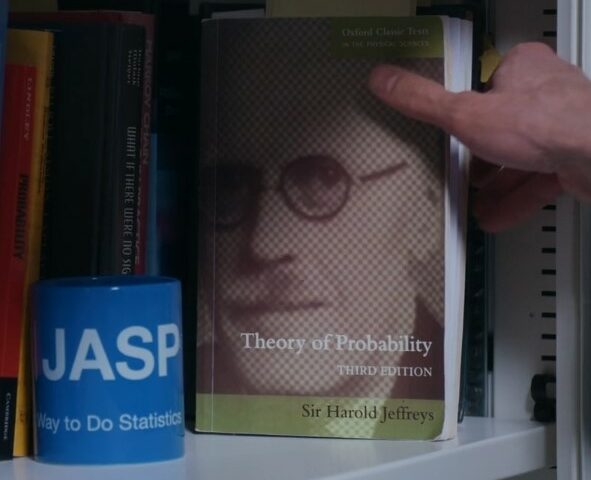What is the idea? We invite researchers to answer two theoretically relevant research questions by analyzing a recently collected dataset on religion and well-being (N=10,535 from 24 countries).
We aim to evaluate the relation between religiosity and well-being using a many analysts approach (cf. Silberzahn et al., 2018). This means that we are inviting multiple analysis teams to answer the same research questions based on the same dataset. This approach allows us to evaluate to what extent different analysis teams differ in their conclusions (i.e., is the effect present or not), but also how much variability there is (1) in the computed effect sizes, (2) the inclusion and operationalization of variables, (3) in the statistical models.
Who can participate? Researchers at all levels are welcome (PhD student to full professor); you can sign up individually or as a team. Extensive methodological or topical knowledge is not a prerequisite.
What are the research questions? 1) Do religious people report higher well-being? 2) Does the relation between religiosity and well-being depend on how important people consider religion to be in their country (i.e., perceived cultural norms of religion)?
What do we offer? Co-authorship for the entire analysis team on the paper.
What do we want from you? We ask you to propose and conduct an analysis to answer the two research questions, following a 2-stage process. In the first stage you receive all study information and propose an analysis. In the second stage, you execute the proposed analysis and complete a short survey summarising your results.
What do we provide? To make the experience as comfortable as possible, we will provide a clean dataset + documentation. Specifically, we will share the original questionnaire, a data documentation file, some short theoretical background (stage 1) and the preprocessed data (reverse-scaled etc.; stage 2). You can already access the project information here: http://bit.ly/MARPinfo
When do we need you? You can sign up right away: http://bit.ly/MARPsignup. The first stage (proposal) will run until December 22nd, 2020 and the second stage (execution) until February 28th, 2021.
What is the theoretical background? The literature on the psychology of religion has been abound with positive correlations between religiosity and mental health (Koenig, 2009). For instance, increased religious involvement has been associated with a reduced risk for depression (Smith, McCullough, & Poll, 2003). At the same time, meta-analyses indicated that the relation between religion and well-being is often ambiguous and small (around r = .1; Bergin, 1983; Garssen et al., 2020; Hackney & Sanders, 2003; Koenig & Larson, 2001). A recent meta-analysis of longitudinal studies found that out of eight religiosity/spirituality measures, only participation in public religious activities and the importance of religion were significantly related to mental health. Furthermore, the type of religiosity (i.e., intrinsic vs extrinsic; positive vs. negative religious coping) appears to moderate the relationship between religion and mental well-being (Smith et al., 2003). For instance, extrinsic religious orientation (e.g., when people primarily use their religious community as a social network, whereas religious beliefs are secondary) and negative religious coping (e.g., when people have internal religious guilt or doubts) has been shown to be detrimental to well-being (Abu-Raiya, 2013; Weber & Pargament, 2014).
Additionally, there is a large variability in the extent to which religion is ingrained in culture and social identity across the globe (Ruiter & van Tubergen, 2009; Kelley & De Graaf, 1997). Accordingly, when investigating the association between religiosity and well-being, we should possibly take into account the cultural norms related to religiosity within a society. Being religious may contribute to self-rated health and happiness when being religious is perceived to be a socially expected and desirable option (Stavrova, Fetchenhauer, & Schlösser, 2013; Stavrova, 2015). This makes sense from the literature on person-culture fit (Dressler, Balieiro, Ribeiro, & Santos, 2007): a high person-culture fit indicates good agreement between one’s personal values and beliefs and the beliefs that are shared by one’s surrounding culture. Religious individuals may be more likely to benefit from being religious, when their convictions and behaviors are in consonance with perceived cultural norms. For countries in which religion is stigmatized the relation between religiosity and well-being may be absent or even reversed.
Contact: feel free to contact us at manyanalysts.religionhealth@gmail.com if you have questions.
References
Abu-Raiya, H. (2013). On the links between religion, mental health and inter-religious conflict: A brief summary of empirical research. The Israel Journal of Psychiatry and Related Sciences, 50, 130–139.
Bergin, A. E. (1983). Religiosity and mental health: A critical reevaluation and meta-analysis. Professional Psychology: Research and Practice, 14, 170–184. https://doi.org/10.1037/0735-7028.14.2.170
Dressler, W. W., Balieiro, M. C., Ribeiro, R. P., & Santos, J. E. D. (2007). Cultural consonance and psychological distress: Examining the associations in multiple cultural domains. Culture, Medicine and Psychiatry, 31, 195–224. https://doi.org/10.1007/s11013-007-9046-2
Garssen, B., Visser, A., & Pool, G. (2020). Does spirituality or religion positively affect mental health? Meta-analysis of longitudinal studies. The International Journal for the Psychology of Religion, 1–17. https://doi.org/10.1080/10508619.2020.1729570
Gebauer, J. E., Sedikides, C., Schönbrodt, F. D., Bleidorn, W., Rentfrow, P. J., Potter, J., & Gosling, S. D. (2017). The religiosity as social value hypothesis: A multi-method replication and extension across 65 countries and three levels of spatial aggregation. Journal of Personality and Social Psychology, 113, e18–e39. https://doi.org/10.1037/pspp0000104
Hackney, C. H., & Sanders, G. S. (2003). Religiosity and Mental Health: A Meta–Analysis of Recent Studies. Journal for the Scientific Study of Religion, 42, 43–55. https://doi.org/10.1111/1468-5906.t01-1-00160
Kelley, J., & de Graaf, N. D. (1997). National context, parental socialization, and religious belief: Results from 15 nations. American Sociological Review, 62, 639–659. https://doi.org/10.2307/2657431
Koenig, H. G. (2009). Research on religion, spirituality, and mental health: A review. The Canadian Journal of Psychiatry, 54, 283–291. https://doi.org/10.1177/070674370905400502
Koenig, H. G., & Larson, D. B. (2001). Religion and mental health: Evidence for an association. International Review of Psychiatry, 13, 67–78. https://doi.org/10.1080/09540260124661
Ruiter, S., & van Tubergen, F. (2009). Religious attendance in cross-national perspective: A multilevel analysis of 60 countries. American Journal of Sociology, 115, 863–895. https://doi.org/10.1086/603536
Silberzahn, R., Uhlmann, E. L., Martin, D. P., Anselmi, P., Aust, F., Awtrey, E., … others. (2018). Many analysts, one data set: Making transparent how variations in analytic choices affect results. Advances in Methods and Practices in Psychological Science, 1, 337–356. https://doi.org/10.1177/2515245917747646
Smith, T. B., McCullough, M. E., & Poll, J. (2003). Religiousness and Depression: Evidence for a Main Effect and the Moderating Influence of Stressful Life Events. Psychological Bulletin, 129, 614–636. https://doi.org/10.1037/0033-2909.129.4.614
Stavrova, O. (2015). Religion, self-rated health, and mortality: Whether religiosity delays death depends on the cultural context. Social Psychological and Personality Science, 6, 911–922. https://doi.org/10.1177/1948550615593149
Stavrova, O., Fetchenhauer, D., & Schlösser, T. (2013). Why are religious people happy? The effect of the social norm of religiosity across countries. Social Science Research, 42, 90–105. https://doi.org/10.1016/j.ssresearch.2012.07.002
Weber, S. R., & Pargament, K. I. (2014). The role of religion and spirituality in mental health. Current Opinion in Psychiatry, 27, 358–363. https://doi.org/10.1097/YCO.0000000000000080
About The Authors

Suzanne Hoogeveen
Suzanne Hoogeveen is a PhD candidate at the Department of Social Psychology at the University of Amsterdam.

Alexandra Sarafoglou
Alexandra Sarafoglou is a PhD candidate at the Psychological Methods Group at the University of Amsterdam.

Eric-Jan Wagenmakers
Eric-Jan (EJ) Wagenmakers is professor at the Psychological Methods Group at the University of Amsterdam.



